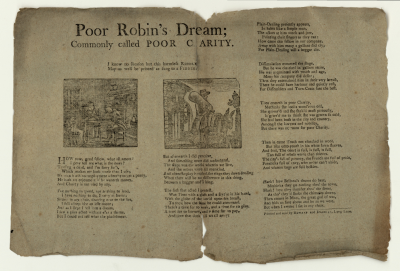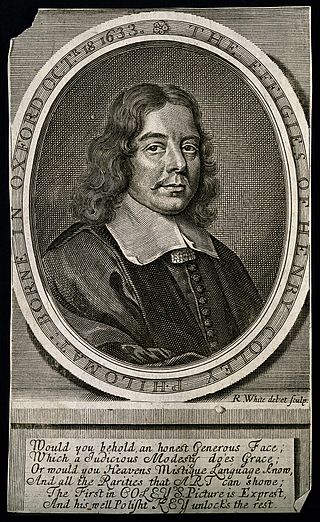Further works

Other works purporting to be by 'Poor Robin' and attributed to Winstanley or his imitators are:
- 'Poor Robin's Pathway to Knowledge' (1663, 1685, 1688);
- 'Poor Robin's Character of France,' 1666;
- 'The Protestant Almanack,' Cambridge (1669 and following years);
- 'Speculum Papismi' (1669);
- 'Poor Robin's Observations upon Whitsun Holidays' (1670);
- 'Poor Robin's Parley with Dr. Wilde,' 1672, sheet in verse;
- 'Poor Robin's Character of a Dutchman,' 1672; 'Poor Robin's Collection of Ancient Prophecies,' 1672;
- 'Poor Robin's Dreams, commonly called Poor Charity' 1674 (sheet with cuts);
- 'Poor Robin 1677, or a Yea and Nay Almanac,' a burlesque on the quakers (annually continued till 1680);
- 'Poor Robin's Visions,' 1677;
- 'Poor Robin's Answer to Mr. Thomas Danson,' 1677;
- 'Poor Robin's Intelligence Reviv'd,' 1678;
- 'Four for a Penny,' 1678;
- 'A Scourge for Poor Robin,' 1678;
- 'Poor Robin's Prophecy,' 1678;
- 'Poor Robin's Dream . . . dialogue between . . . Dr. T[onge] and Capt. B[edloe],' 1681;
- 'The Female Ramblers,' 1683;
- 'Poor Robin's Hue and Cry after good Housekeeping,' 1687;
- 'Poor Robin's True Character of a Scold,' 1688 (reprinted at Totham Hall press, 1848);
- 'Curious Enquiries,' 1688; 'A Hue and Cry after Money,' 1689 (prose and verse);
- 'Hieroglyphia Sacra Oxoniensis,' 1702, a burlesque on the frontispiece to the Oxford almanac;
- 'New High Church turned Old Presbyterian,' 1709;
- 'The Merrie Exploits of Poor Robin, the Merrie Sadler of Walden,' n.d. (Pepysian Collection; reprinted Edinburgh, 1820, and Falkirk, 1822);
- 'Poor Robin's Creed,' n.d. [4]



